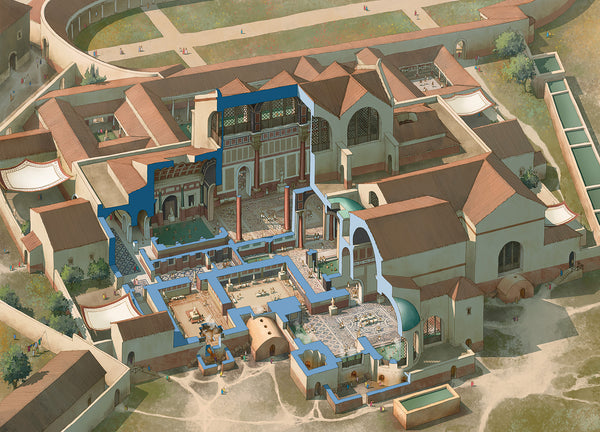A War for England 800 years ago
In one month’s time we will be marking the 800th anniversary of the Battle of Lincoln - perhaps one of the most important battles in English history, yet one that is often overlooked by historians.
Our new issue of Medieval Warfare focuses on the First Barons’ War, a conflict that was both a civil war and a foreign invasion of England. Most people will know about Magna Carta, the document that set out limitations for the English king and enshrined rights for his nobles, but it was in the aftermath of the failure of that deal that is focus of this issue.
Our magazine opens with the Siege of Rochester in the fall of 1215, the first major clash of the First Barons’ War. “Our age has not known a siege so hard pressed,” wrote one chronicler, “nor so strongly resisted.” William E. Welsh details how King John was able to capture the strategic fortress, including the role of pigs in taking down the castle’s walls.
The figure of the English king is the subject of the next article, with Lane Sobehrad examining the negative portrayals that medieval chroniclers gave to John. Writers like Roger of Wendover, Ralph of Coggeshall, and Matthew Paris consistently rebuked and criticized the English king. For example, the latter wrote:
"John was a tyrant rather than a king, a subverter rather than a governor, an oppressor of his own people, and a friend to strangers, a lion to his own subjects, a lamb to foreigners and rebels; for, owing to his idleness, he had lost the duchy of Normandy and many other of his territories, and moreover was eager to lose or destroy the kingdom of England; and he was an insatiable extorter of money, an invader and destroyer of the possessions of his own countrymen.”
If only John lived long enough, then England quite probably would have become the domain of a French prince. But he died on 19 October 1216, and the war for England would become much more fluid and unpredictable.
In the year 1217 the fate of England would be decided in two places: at Dover, where a siege stretched on for over a year, and at Lincoln, where a six-hour battle would take place it the streets of the medieval city. To tell the stories of these events, we are pleased to have historians Catherine Hanley and Sean McGlynn, both of whom have recently written books about the First Barons’ War.
 Our coverage of the war also includes Craig Nakashian telling us about the pivotal role played by Bishop Peter des Roches in the Battle of Lincoln, and Andrew Knighton discussing the fate of those taken prisoner during the conflict. Danièle Cybulskie is also here to explain the importance of castles in England, including five changes that made them even more formidable during the Middle Ages.
Our coverage of the war also includes Craig Nakashian telling us about the pivotal role played by Bishop Peter des Roches in the Battle of Lincoln, and Andrew Knighton discussing the fate of those taken prisoner during the conflict. Danièle Cybulskie is also here to explain the importance of castles in England, including five changes that made them even more formidable during the Middle Ages.
Our issue - A War for England - has quite a lot: a villainous king, a noble knight, gruelling sieges and a drama-filled battle that led one chronicler to remark, “O famous day, to be venerated through our age!” The First Barons’ War was an intense conflict, one that could have ended in many other ways - perhaps leaving England a ruin ruled by a hated monarch, or with the country united with France.
You can find out how history turned out in our latest issue - click here to learn more. Afterwards, you can attend one of the events taking place in England that will be commemorating the 800th anniversary of the Battle of Lincoln.


